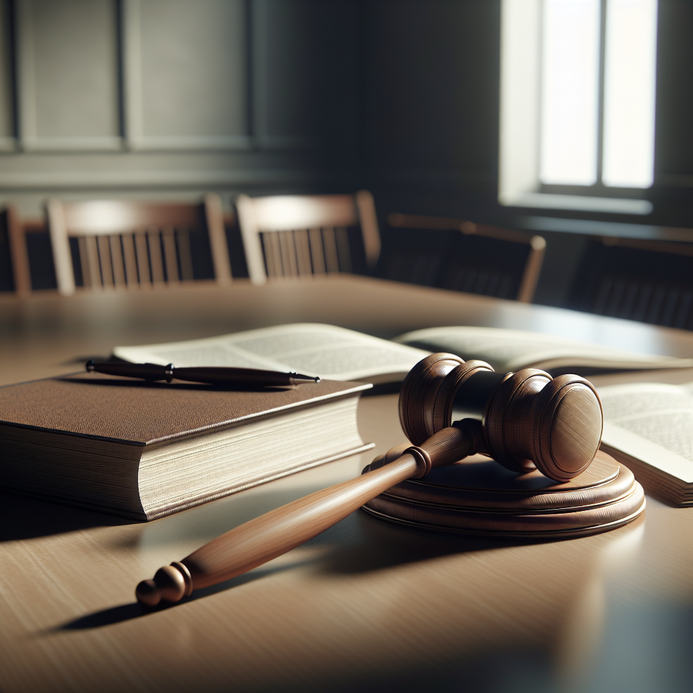Understanding the meaning and legal procedure of a continuance is essential for those navigating court processes. At its core, a continuance entails postponing legal proceedings, offering more preparation time or addressing specific issues. Courts demand sound reasoning for granting such requests, ensuring fairness while avoiding undue delays.
This article clarifies the definition, legal context, and process for requesting a continuance. By considering potential consequences and procedural nuances, individuals can approach court proceedings with confidence. LegalExperts.AI is dedicated to providing in-depth legal expertise to assist in all stages of the judicial process.
What Is a Continuance?
A continuance refers to a delay or postponement of scheduled legal proceedings. It allows parties more time to prepare or resolve issues potentially impacting the case’s fairness.
What does continuance mean in court?
In legal contexts, a continuance is the rescheduling of a court proceeding to a later date. This can apply to civil and criminal cases, though the criteria for granting continuances vary. In criminal cases, for instance, the right to a speedy trial often imposes stricter limitations on delays compared to civil proceedings.
Legal definition of continuance
Under U.S. law, a continuance is typically defined as a temporary suspension or deferment of court actions at the request of one or both parties. Federal Rules of Civil Procedure, often mirrored by state statutes, guide the parameters for granting continuances, emphasizing fair trial principles and procedural standards.
Synonyms and practical examples
Synonyms include deferral, postponement, or adjournment. For example, in a high-profile criminal case, the court might grant a continuance when a critical witness becomes unavailable due to unforeseen circumstances. Such rulings demonstrate the discretionary nature of continuance decisions within judicial boundaries.
Grounds and Reasons for Granting a Continuance
Courts carefully evaluate the basis for continuance requests, balancing fairness with the need to avoid unnecessary delays.
Why would a court grant a continuance?
Legitimate reasons for granting continuances include:
- Absent witnesses: When a witness essential to the case cannot appear.
- Personal emergencies: Serious health or family matters impacting the availability of parties.
- Counsel change or conflict: Transition or scheduling conflicts involving legal representatives.
Rule 18-B: Grounds for continuance
Rule 18-B offers general provisions and specific scenarios under which continuances may be granted. For instance, unforeseen events such as sudden legal counsel withdrawal or the critical unavailability of evidence can justify rescheduling. Courts prioritize substantial justifications that align with procedural fairness.
Grounds for continuance in criminal cases
In criminal law, continuances may be essential to preserving a defendant’s rights—for example, ensuring adequate time to access and review evidence. Prosecutors may also request continuances to gather additional evidence or secure key witnesses. Courts, however, must balance these needs against constitutional guarantees like a speedy trial.
How to Request a Continuance
Submitting a continuance request involves adherence to legal protocols, emphasizing clarity and justification.
How do you request a continuance?
To formally request a continuance:
- Identify the applicable court rules (federal or state).
- File a written motion, specifying the reasons for delay.
- Provide supporting documents, such as medical statements or affidavits from absent witnesses.
Procedures vary across jurisdictions; always refer to the specific court’s protocols.
Do you need a lawyer to get a continuance?
While legal representation enhances the success of continuance requests, it is not mandatory. Self-represented litigants must clearly document and articulate the need for a postponement. However, professional legal advice minimizes errors and enhances argument strength.
Procedure for court continuance
A continuance request typically requires submitting:
- Motion paperwork: Outlining reasons for the request.
- Supporting documents: Evidence substantiating your claim.
- Notification of opposing parties: Informing them of your request.
The court generally reviews these submissions before issuing a decision.
When a continuance may be granted
Courts often consider compelling circumstances, such as:
- Key witness unavailability: Crucial to case outcomes.
- Conflicting legal schedules: In cases where participants face overlapping commitments.
- Emergency health issues: Impacting either the attorneys or parties involved.
Effects and Risks of Continuances
While continuances provide flexibility, they can carry strategic and procedural consequences.
What are the effects of a continuance?
Continuances generally extend case timelines, potentially delaying justice or increasing case complexity. They may also alter trial dynamics, as opposing parties gain additional preparation time.
What happens if my request for a continuance is denied?
If a continuance request is denied, options may include proceeding as scheduled or seeking alternative relief, such as case dismissal motions. In criminal contexts, denial could impact a defendant’s strategic preparations but also reinforces the constitutional emphasis on a speedy trial.
Potential downsides of requesting a continuance
Key drawbacks include:
- Rising legal fees due to prolonged court engagements.
- Risk of courts perceiving delays as obstructive or strategic.
- Extended emotional and logistical strain on all parties involved.
Consequences of continuances
Continuances often:
- Delay case resolutions, sometimes prolonging legal battles unnecessarily.
- Consume significant court resources, impacting scheduling efficiency.
- Influence trial momentum, which may impact case outcomes.
National and State Continuance Rules
Continuance regulations are jurisdiction-specific, demanding familiarity with both federal and state guidelines.
Federal Rules vs. State Rules
Federal courts follow uniform guidelines, emphasizing fairness and trial efficiency. State courts adopt varied standards, with some jurisdictions implementing stricter requirements based on caseload and policy priorities.
Comprehensive national comparison
States exhibit notable variance in continuance policies—California, for instance, offers broader discretion to courts, while jurisdictions like Texas enforce stricter statutory limits. Familiarity with local rules is indispensable.
Additional Considerations for Continuances
Strategic and procedural factors should guide continuance requests, avoiding unnecessary delays.
Should you request a continuance?
The appropriateness of a continuance depends on case specifics. If alternative solutions exist, such as expedited evidence gathering, consider those first to minimize procedural complexities.
More best practices for requesting a continuance
- Draft requests that address specific case nuances.
- Include comprehensive, documented justifications.
- Seek legal guidance to strengthen procedural adherence.
Related searches on continuances
Exploring frequent legal queries, such as “How do continuances affect trial outcomes?” or “What procedural tools can minimize delays?” can clarify wider continuance trends.
According to a 2025 legal analysis by the National Law Review, cases with well-documented continuance requests observed a 40% higher likelihood of approval.
External tools and resources
For additional resources:
- Explore legal aid platforms for procedural guidance.
- Utilize platforms like PACER for case law research and information.
LegalExperts.AI provides reliable solutions.



